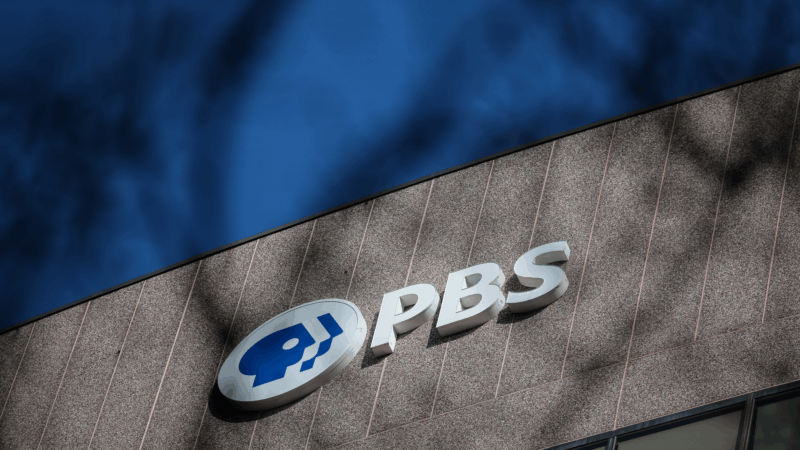PBS cuts 15% of jobs in wake of federal funding cut
PBS’s chief executive told public television officials Thursday that it was cutting about 15 percent of its jobs due to the move by Republicans in Congress to eliminate all federal funding for public broadcasting starting on Oct. 1.
Thirty-four PBS staffers were notified Thursday that their positions were being cut. Taken with the loss of a longstanding federal grant for an educational initiative earlier this summer, and the elimination of about three dozen other vacant positions, PBS will have lost more than 100 jobs in all.
PBS Chief Executive Paula Kerger said the system is taking a 21 percent hit in revenues.
“Over the last weeks, we have been working through how best to manage the impact of loss of federal funding,” Kerger wrote in a memo to station managers shared with NPR News. “Just like every single public media organization in the country, we are being forced to make hard choices.”
That result of the federal cuts from the Congressional rescission – or clawback – of planned expenditures of $1.1 billion over two years on public media and the decision of the Trump administration to kill a major grant from the U.S. Education Department.
“While we have seen good progress from our Foundation,” Kerger wrote, “including a significant grant from a major donor to help support the NewsHour and Kids content, we recognized that we need to make significant changes in our staffing and operations.”
She said that all facets of PBS would be affected, but that other steps had been taken first, such as cutting travel and merit pay evaluations.
PBS and PBS stations on average received 15 percent of their annual finances from the Corporation from Public Broadcasting. (PBS does not own any stations.) The not-for-profit corporation funneled federal funds to public television and radio stations as well as PBS and, to a lesser extent, NPR.
Some public media stations, including KQED in San Francisco and GBH in Boston, have embarked on their own rounds of layoffs in recent months.
NPR’s CEO, Katherine Maher, has said she will reduce the network’s budget by $8 million to offer savings to public stations most affected by the cuts. It is unlikely that that represents the full financial effect of the policy shift for the radio network.
In an appearance on the CBS Late Show, Maher told host Stephen Colbert that an estimated 70 to 80 of NPR’s 246 member stations could have to shut down.
NPR receives 1 to 2 percent of its annual funds from the CPB, which announced it will shut its doors at the end of this month. Public radio stations, on average, typically receive about 10 percent of their revenues from the CPB, and pay NPR for the right to broadcast its programs.
For some stations, particularly those serving rural and Native American audiences, the reliance on the federal largesse has been far greater.
Disclosure: This story was written and reported by NPR media correspondent David Folkenflik and edited by Managing Editor Gerry Holmes. Under NPR’s protocol for covering itself, no news executive or corporate official reviewed the story before it was posted publicly.
‘Bomb cyclone’ forecasted to bring heavy snow, blizzard conditions and dangerous travel
A 'bomb cyclone' is intensifying severe winter weather for millions of people across the U.S. The system is expected to knock out power and disrupt holiday travel.
Russia sends 3 Iranian satellites into orbit, report says
The report said that a Russian rocket sent the satellites on Sunday from a launchpad in eastern Russia.
Viral global TikToks: A twist on soccer, Tanzania’s Charlie Chaplin, hope in Gaza
TikToks are everywhere (well, except countries like Australia and India, where they've been banned.) We talk to the creators of some of the year's most popular reels from the Global South.
This painting is missing. Do you have it?
An important work from a rediscovered artist has been absent from public view since the 1970s. A New York curator is hunting for it.
Memory loss: As AI gobbles up chips, prices for devices may rise
Demand for memory chips currently exceeds supply and there's very little chance of that changing any time soon. More chips for AI means less available for other products such as computers and phones and that could drive up those prices too.
Brigitte Bardot, sex goddess of cinema, has died
Legendary screen siren and animal rights activist Brigitte Bardot has died at age 91. The alluring former model starred in numerous movies, often playing the highly sexualized love interest.








